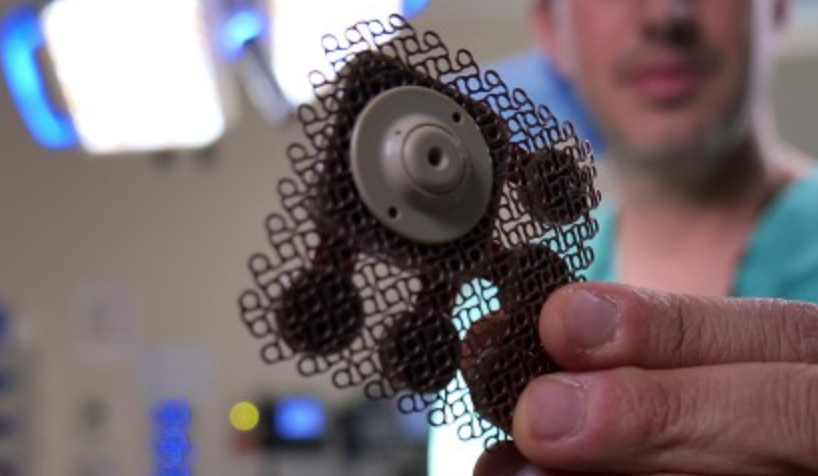Adam Sonaband and Northwestern colleages used a skull-implantable ultrasound device to open the blood-brain barrier and repeatedly permeate critical regions of the human brain, to deliver intravenous chemotherapy to glioblastoma patients.
This is the first study to successfully quantify the effect of ultrasound-based blood-brain barrier opening on the concentrations of chemotherapy in the human brain. It showed a four- to six-fold increase in concentrations of paclitaxel and carboplatin, powerful drugs not currently used in glioblastoma because they did not cross the blood brain barrier. Temozolomide does cross the blood-brain barrier, but is weaker.
This is also the first study to describe how quickly the blood-brain barrier closes after sonication, allowing optimization of the sequence of drug delivery and ultrasound activation to maximize drug penetration.
The ultrasound implantation takes four minutes, and the patient is awake. It is the basis of an ongoing phase 2 clinical trial.
